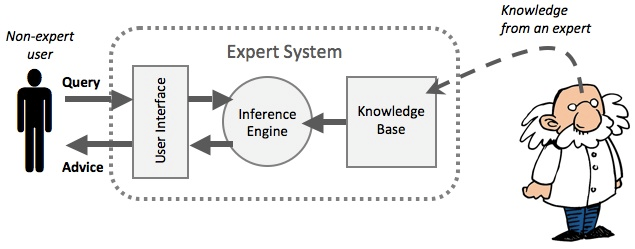BANKING APPLICATIONS
Technology has now revolutionized and everything is all
about internet. For example:
- Internet Banking
- Automated Teller Machines (ATM)
- Chip and PIN technology
AUTOMATED TELLER MACHINES (ATM)
ATM is an electronic device that
allows customers to withdraw cash and receive a report of the account's
balance. Anyone with a debit card can access ATM.

Disadvantages
•
Not available in remote places.
•
Cannot avoid illegal use in case of stolen card.
•
Some banks charge users for using ATMs
Advantages
•
You can withdraw cash at any time, day or night.
The banks don’t need to be open.
•
ATMs offer the convenience of multiple
locations. You can withdraw cash at any bank that is part of the system to which
your ATM card is linked.
•
Your ATM card is protected by a PIN, keeping
your money safe.
Chip and PIN
This system is designed to increase
the security than relying only on a signature. Chip is a computer chip embedded
in the smartcard, and PIN is to a personal identification number that the
customer must supply. Chip and PIN is used for payment system for credit,
debit, and ATM cards.
For example:
•
The waiter inserts the card into the chip and
PIN reader.
•
The customer enters the PIN using a keypad.
•
The PIN is read from the chip on the card and is
compared to the one just keyed in.
•
If they are the same, then the transaction can
proceed.
•
A check is then made on whether they have enough
funds.
•
The same amount of money is credited to the
restaurant’s bank account.
•
A receipt is produced as proof of purchase.
Advantages
- It doesn't take a long time to pay for your purchases
- It helps reduce robbery at tills
Disadvantages
- Risk of people seeing your PIN
- Can cause problems for people who are travelling in countries which do not use Chip and PIN
LIBRARY SYSTEM
Library
nowadays makes use of technology. It involves the use of barcodes which are
used to track items owned, orders made, bills paid, and patrons who have
borrowed.
There are two files describe a computerized library system
based on barcodes:
- Book Files which contains:
1.
Barcode
2.
Book Title
3.
Name of Author
4.
Date Published
5.
Number of Books
6.
Date due back
•
Borrower’s Files which contains:
1.
Borrower’s Name
2.
Borrower’s Number
3.
Borrower’s details
4.
Barcode of the book borrowed
When a borrower takes out a book, the book’s barcode is
scanned and linked to data the book’s title as well as the due date.
EXPERT SYSTEM
Expert system is a computer system
that replicates what a human usually does as an expert. It did its job just
like how the experts did their jobs with the same knowledge. It’s amazing how a
system can mimic the knowledge of an expert. Expert system is used in:
•
diagnoses human illnesses
•
make financial forecasts
•
schedule routes for delivery vehicles
•
X-Ray diagnosis

Steps for setting up an expert system:
•
Interview the expert about the things required
in the expert system
•
Knowledge base, rules base and inference engine
is designed and created
•
User interface is also created
•
The expert system is now tested whether it
qualifies or not
•
Lastly, asking about the opinion of the experts
about what do they think about the expert system.
Advantages
•
Efficient
•
Will never get tired
•
Expert advice is available at all times which
means that even without the ‘real’ expert, the work still can be done
Disadvantages
•
Still not as good as the ‘real’ experts
•
Uncreative solutions
•
A narrow range of knowledge
Knowledge Base
Knowledge base is the base
where the experts give the information inputs. All the information needed is
stored here.
Inference Engine
Inference engine is where
the problems are solved according to the information provided by the experts.
Here is where the user’s questions meet the expert’s conclusion/information.
Rules Base
Rules
base is made up of inference rules which are used by the inference engine to
draw conclusions. They closely follow human-like reasoning.
References:
Those are the explanations and I hope this will be useful for you. Thank you for reading!

No comments:
Post a Comment